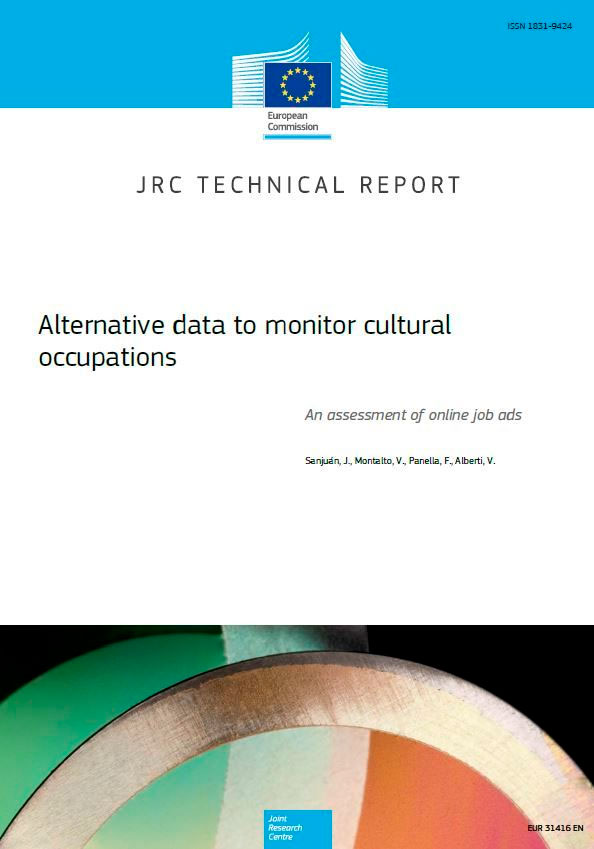
The technical report by researcher Jordi Sanjuán Belda (member of the Econcult team) together with Valentina Montalto, Francesco Panella and Valentina Alberti during their stay at the JRC on "Alternative data to monitor cultural occupations: An assessment of online job ads" was published on 15 February.
The article discusses the economic turbulence experienced in recent years as a result of the Covid-19 pandemic. These highlight the importance of obtaining complementary sources to official statistics for real-time monitoring of variables of socio-economic interest such as employment. The need for accurate and timely data is most important for areas such as the cultural and creative sectors (CCS), which have been heavily affected by the social distancing norms introduced in response to the spread of the pandemic.
At the same time, the rise of the digital economy and the increasingly popular use of job posting platforms offer new and potentially valuable alternative sources of data for monitoring the labour market in real time.
The white paper thus investigates the statistical and distributional characteristics of online job advertisement data on cultural occupations in EU countries. The data comes from Online Job Adverts (OJA), a database developed by the European Centre for the Development of Vocational Training (CEDEFOP). The aim has been to assess the representativeness of these data for policy making, taking Eurostat's cultural employment statistics as a reference. CEDEFOP collects data from a variety of sources, such as job search engines, public employment services, websites, agencies and online newspapers.
The result is a database with more than 134 million observations for the EU-27 and the UK.
Images:











